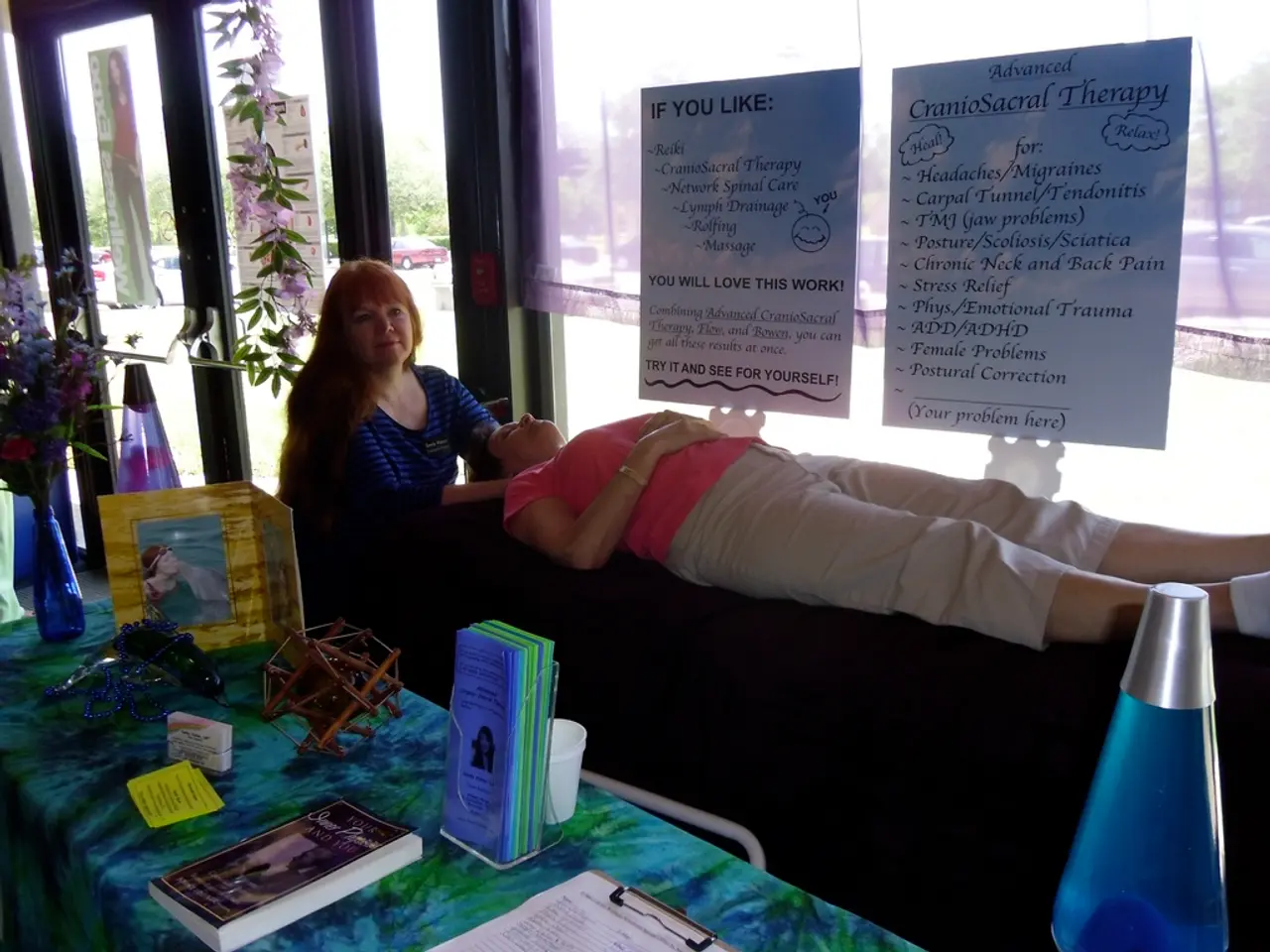Strategies to Enhance Mental Resilience and Personal Welfare: A comprehensive guide
Life is full of challenges, but with the right tools, you can navigate them more effectively. Here are some coping strategies that have been supported by research and clinical practice to help manage stress, improve mental health, and build resilience.
Firstly, mindfulness and meditation can be incredibly beneficial. These practices help enhance present-moment awareness, reduce emotional reactivity, and improve self-awareness, making it easier to manage triggering thoughts and anxiety.
Physical exercise is another key strategy. Activities such as daily walks, yoga, swimming, or light resistance training release endorphins, natural mood boosters, which help reduce anxiety and improve mood.
Deep breathing and progressive muscle relaxation are techniques that can help reduce physiological stress responses and promote calmness.
Journaling is a powerful tool for processing complex feelings, identifying stress triggers, and improving mood.
Building a structured daily routine can also reduce stress related to unpredictability or overwhelm. Consistent sleep hygiene, balanced nutrition, and effective time management are all crucial components of this strategy.
Social support is invaluable. Connecting with friends, family, support groups, or therapists provides comfort, perspective, and helps reduce feelings of isolation.
Creative outlets and hobbies such as art, music, gardening, or playing instruments provide constructive emotional expression and promote grounding in the present moment.
Self-care practices are essential for nourishing body and soul. From hobbies to limiting screen time and ensuring work-life balance, these practices support overall mental health.
Remember, there's no one-size-fits-all approach to coping strategies. The key is to have a mix of strategies to create a personalized coping toolbox.
Activities like active listening and empathy can make you feel valued and help put your own problems into perspective. Learning to say no is empowering and helps protect emotional energy long term.
Drawing and painting can be therapeutic, providing a tactile, engaging way to disconnect from digital distractions and tune into feelings. Reading can transport you to different worlds, offer new perspectives, and inspire new ways of thinking. Music can be profoundly healing, serving as a form of emotional release. Writing provides a structured way to explore thoughts and feelings, bringing clarity to chaotic emotions.
Adding these creative activities to your "coping toolbox" can make a world of difference in overall emotional well-being.
If you're seeking additional support, consider reaching out to a mental health professional. You can call (844) 867-8444 to schedule an appointment.
Having a social support network can be a powerful buffer against stress. So, don't hesitate to reach out to friends, family, or support groups when you need it most. Together, we can navigate life's challenges with resilience and strength.
Mental health improvement is supported by science, with mindfulness and meditation being effective techniques to manage triggering thoughts and anxiety. Additionally, physical exercise like daily walks, yoga, swimming, or light resistance training can release endorphins, naturally boosting mood and reducing anxiety.




